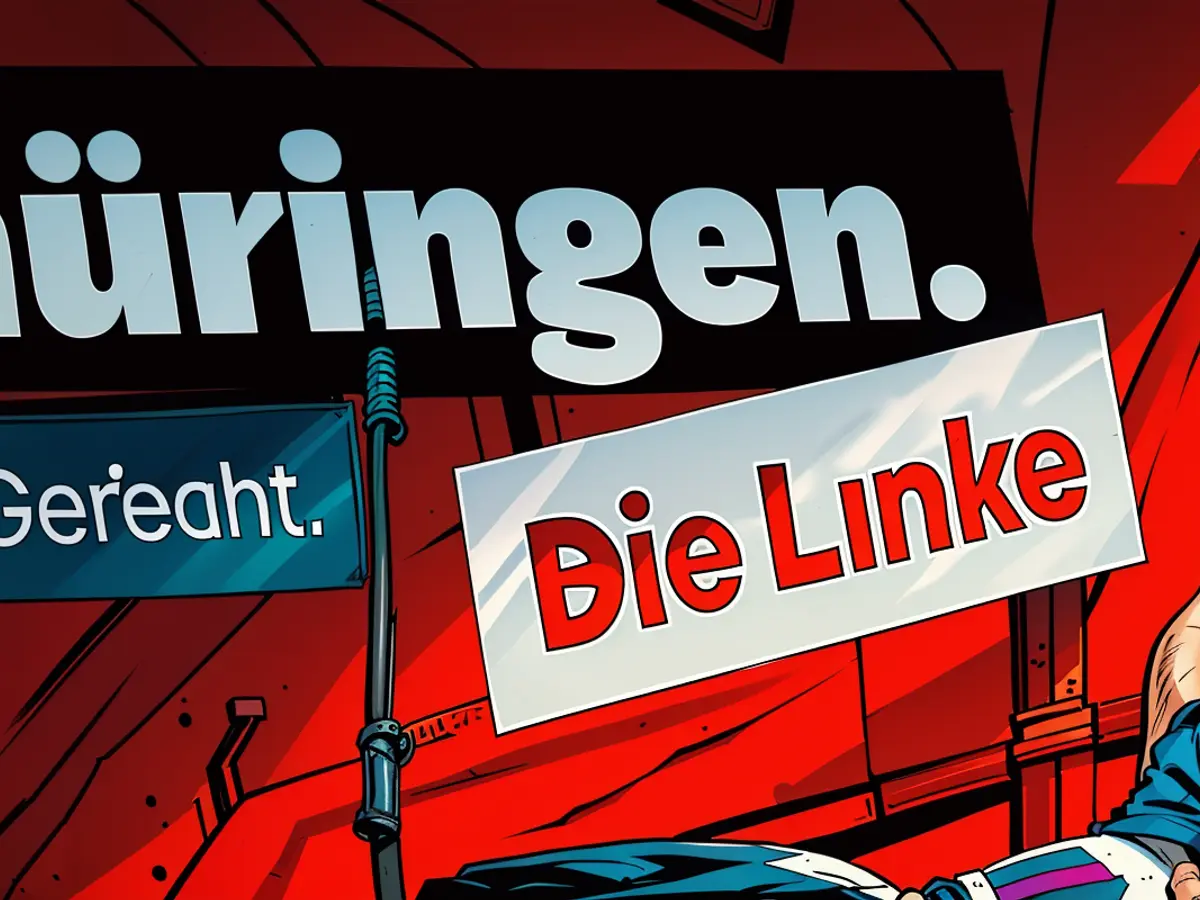- The electoral contest is drawing to a close.
As the highly anticipated state elections in Thuringia and Saxony draw near, political parties are back at it, trying to win over voters. The Alternative for Germany (AfD) is holding its final rally in Erfurt, with top candidate Björn Höcke and federal co-chair Alice Weidel set to speak. Meanwhile, The Left, led by top candidate and incumbent Minister President Bodo Ramelow, is campaigning in Gera.
In Saxony, The Left's top candidate Susanne Schaper is wrapping up her campaign in Leipzig. As for alliances in Zwickau and Dresden, they're planning demonstrations to promote tolerance and democracy before the elections. Over 8,000 people are anticipated to attend the rally in the state capital.
These elections could significantly alter the political landscapes of both states, especially in Thuringia, where forming a government may prove to be quite the challenge.
According to recent polls by ZDF Politbarometer, the AfD is leading in Thuringia with 29%, far ahead of the Christian Democratic Union (CDU) at 23% and the Sahra Wagenknecht Alliance (BSW) at 18%. In Saxony, the CDU is leading with 33%, followed closely by the AfD at 30%. The Left Party is not expected to make it into the state parliament, with both the Greens and the Social Democrats (SPD) polling at 6%. The BSW is polling at 12%.
Political scientist Manfred Güllner finds predicting the outcomes in Saxony and Thuringia to be rather tricky. Both incumbent minister-presidents, Ramelow and Michael Kretschmer (CDU), enjoy high approval ratings.
Federal Chancellor Olaf Scholz's (SPD) visit to Saxony was met with boos
Elections have seen an increased level of campaigning from the parties, with top federal politicians attending final rallies in the two states. Chancellor Scholz, representing the SPD, attended the party's closing event in Chemnitz, which was met with loud protests. The far-right micro-party Freie Sachsen's rally nearby could be heard booing and whistling throughout the event.
During his speech, the Chancellor emphasized the importance of attracting workers from other countries to maintain Germany's prosperity and future prospects. "Otherwise, it won't work," he said, emphasizing the need for an open labor market, protection for those seeking refuge, and clear regulations for immigration management.
SPD chairwoman Saskia Esken is worried about her party's performance in the polls
Saskia Esken, chairwoman of the SPD, is concerned about her party's prospects in the upcoming elections. "We're fighting to ensure that social democrats remain represented in the state parliaments and in stable governments," she told the Augsburger Allgemeine.
Recent polls show the SPD polling between 6 and 7% in both states, raising the possibility of not meeting the 5% threshold required for entry into the state parliament. "Of course, this is a major concern, and it weighs heavily on my heart," Esken said. "We must clearly communicate that the SPD stands for social justice, good wages, and successful education policy."
Esken criticized the strong showing of parties like the AfD and BSW in the polls. "It's alarming, and it's particularly surprising considering people don't yet know what they're getting with the BSW," she said. "They seem willing to gamble on an unknown quantity."
In the polls for Thuringia, the CDU trails behind the AfD and the Sahra Wagenknecht Alliance (BSW), securing only 23% of votes, while in Saxony, the CDU leads with 33%.
During her recent interviews, SPD chairwoman Saskia Esken expressed concern about the party's polling numbers in both Saxony and Thuringia, fearing they might not meet the 5% threshold required for entry into the state parliament.








